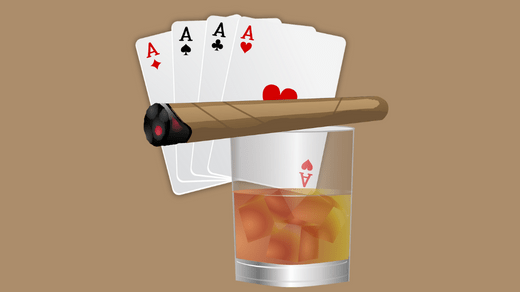
India is a land of diverse cultures, traditions, and customs. One such cultural phenomenon that has garnered attention over the years is Satta Matka, a popular form of gambling. Satta Matka, which translates to “gambling pot,” has a rich history intertwined with controversies and debates. In this article, we will delve into the origins, rise, and legal battles surrounding online matka games, as well as its social and psychological effects on individuals and society.
The Rise of Satta Matka in India
Satta Matka traces its roots back to the bustling city of Mumbai, formerly known as Bombay. It emerged in the 1960s as a form of speculative gambling on the opening and closing rates of cotton traded on the New York Cotton Exchange. Over time, the game evolved and expanded to include betting on various other outcomes, such as playing cards, horse racing, and even cricket matches.
With the passage of time, Satta Matka gained immense popularity across India. The game spread like wildfire, attracting people from all walks of life. Its appeal lay in the potential to earn large sums of money with a small investment, making it a thrilling prospect for many. Additionally, the sense of community and camaraderie among Satta Matka players contributed to its widespread acceptance.
The advent of technology played a pivotal role in the growth of Satta Matka. With the rise of the internet and mobile connectivity, the game transitioned from traditional brick-and-mortar setups to online platforms. This digital transformation made it easier for individuals to participate in Satta Matka, leading to an exponential increase in its popularity.
The Controversies Surrounding Satta Matka
While Satta Matka may have gained popularity, it has always existed in a murky legal realm. The game is considered illegal in India due to its association with gambling, which is largely prohibited except in a few states. The illegality of Satta Matka has led to various controversies and debates surrounding its practice.
One of the significant concerns associated with Satta Matka is its connection to organized crime and the mafia. The vast amounts of money involved in the game have attracted criminal elements who seek to control and exploit the industry. This involvement has often resulted in violence, extortion, and other criminal activities. The mafia’s influence has made it difficult for law enforcement agencies to tackle the issue effectively.
Furthermore, the impact of Satta Matka on society cannot be overlooked. The allure of quick wealth and the adrenaline rush of gambling can lead to addiction among players. Vulnerable individuals, including those from lower socioeconomic backgrounds, often fall prey to the allure of Satta Matka, with disastrous consequences for their financial stability and overall well-being. The game’s inherent unpredictability and the potential for huge losses exacerbate the risks involved.
Legal Battles and Government Intervention
The legal battles surrounding Satta Matka have been long and complex. The Public Gambling Act of 1867, enacted during the British colonial era, serves as the primary legal framework governing gambling in India. The law prohibits the operation of gambling houses and the act of gambling in public places. However, the act does not specifically address online gambling, which has become prevalent in recent years.
In response to the proliferation of Satta Matka and its associated problems, the Indian government has taken several steps to combat the practice. Raids and crackdowns on Satta Matka dens and bookies have been carried out to disrupt the operations of illegal gambling networks. Authorities have also made efforts to raise awareness among the public about the legal and financial risks associated with participating in such activities.
However, the effectiveness of government intervention has been questioned by critics. The underground nature of Satta Matka and the ever-evolving methods employed by its operators make it challenging for law enforcement agencies to eradicate the practice completely. Moreover, the absence of clear legislation regarding online gambling has further complicated the matter, as digital platforms continue to attract a significant number of participants.
Debates on the Legality and Regulation of Gambling
The debate surrounding the legality and regulation of gambling, including online matka app, is a contentious one. Advocates argue that legalizing and regulating the gambling industry can have significant economic benefits. It can create job opportunities, generate tax revenue for the government, and contribute to overall economic growth. They believe that a regulated gambling industry would ensure consumer protection, fair play, and reduce the influence of organized crime.
On the other hand, opponents raise concerns about the social and moral implications of gambling. They argue that gambling can lead to addiction, financial ruin, and social unrest. Critics also express concerns about the potential exploitation of vulnerable individuals and the negative impact on families and communities. Striking a balance between individual freedom and societal well-being remains a central challenge in the ongoing debates.
In India, different states have adopted various approaches to regulate gambling. Some states have implemented strict anti-gambling laws, while others have permitted certain forms of gambling, such as lotteries or horse racing, under specific conditions. The diversity of approaches highlights the complexity of the issue and the need for a nuanced and comprehensive approach to gambling regulation at the national level.
Social and Psychological Effects of Satta Matka
The social and psychological effects of Madhur Bazaar are far-reaching and often devastating. Gambling, including Satta Matka, is known to be addictive due to its inherent nature of chance and unpredictability. The thrill of winning and the fear of losing can create a euphoric cycle that keeps individuals engaged in the game, often at the expense of their financial stability and personal relationships.
Financial consequences are a significant concern for Satta Matka players. The lure of quick riches can lead to impulsive and irrational decision-making, resulting in substantial financial losses. Individuals may find themselves trapped in a cycle of debt, borrowing money to cover their gambling losses and perpetuating a dangerous cycle of financial instability.
The psychological toll on gamblers and their families is equally significant. Problem gambling can lead to stress, anxiety, depression, and even suicidal thoughts. The secrecy surrounding gambling habits often strains personal relationships and erodes trust within families. The impact is not limited to the individual gambler alone but extends to their loved ones as well.
The Role of Technology and Online Platforms
With the advent of technology, Satta Matka has transitioned from traditional offline setups to online platforms. Online Satta Matka websites and mobile applications have gained popularity due to their convenience, accessibility, and anonymity. Players can now participate in the game from the comfort of their homes, using their smartphones or computers.
However, the rise of online platforms has posed new challenges for law enforcement agencies. The anonymous nature of online gambling makes it difficult to track and identify individuals involved in illegal activities. Moreover, the use of cryptocurrencies and other digital payment methods adds another layer of complexity to the regulatory landscape. Policymakers and law enforcement agencies must adapt to these technological advancements to effectively address the issues associated with Satta Matka.
Responsible Gambling and Awareness Programs
Recognizing the potential harm caused by gambling, responsible gambling initiatives and awareness programs have been developed to provide support and resources for individuals struggling with gambling addiction. These programs aim to educate the public about the risks of gambling, promote responsible gambling practices, and provide assistance to those in need.
Counseling services and helplines are available for individuals seeking help or guidance. These resources offer confidential support, advice, and treatment options for those affected by gambling addiction. Additionally, self-exclusion programs allow individuals to voluntarily exclude themselves from participating in gambling activities to regain control over their lives.
International Comparisons and Regulatory Models
To gain a broader perspective, it is essential to look at how different countries regulate gambling. Several nations have successfully implemented regulatory models that balance the economic benefits of gambling with social responsibility. For instance, the United Kingdom has established a comprehensive regulatory framework that focuses on consumer protection, responsible gambling, and fair play. Other countries, such as Australia and Singapore, have also implemented effective measures to regulate the industry.
India can draw valuable lessons from these international examples and tailor its own regulatory framework accordingly. Learning from the experiences of other nations can help strike a balance between fostering a regulated gambling industry and safeguarding the interests of individuals and society at large.
Satta Matka, with its origins in Mumbai and its subsequent spread across India, has remained a subject of controversy and debate. While it holds a certain allure for individuals seeking quick riches, it also carries significant risks and consequences. The illegal nature of Satta Matka, coupled with its association with organized crime, has raised concerns about its impact on society. The social and psychological effects of gambling, particularly addiction and financial ruin, further compound these concerns.



